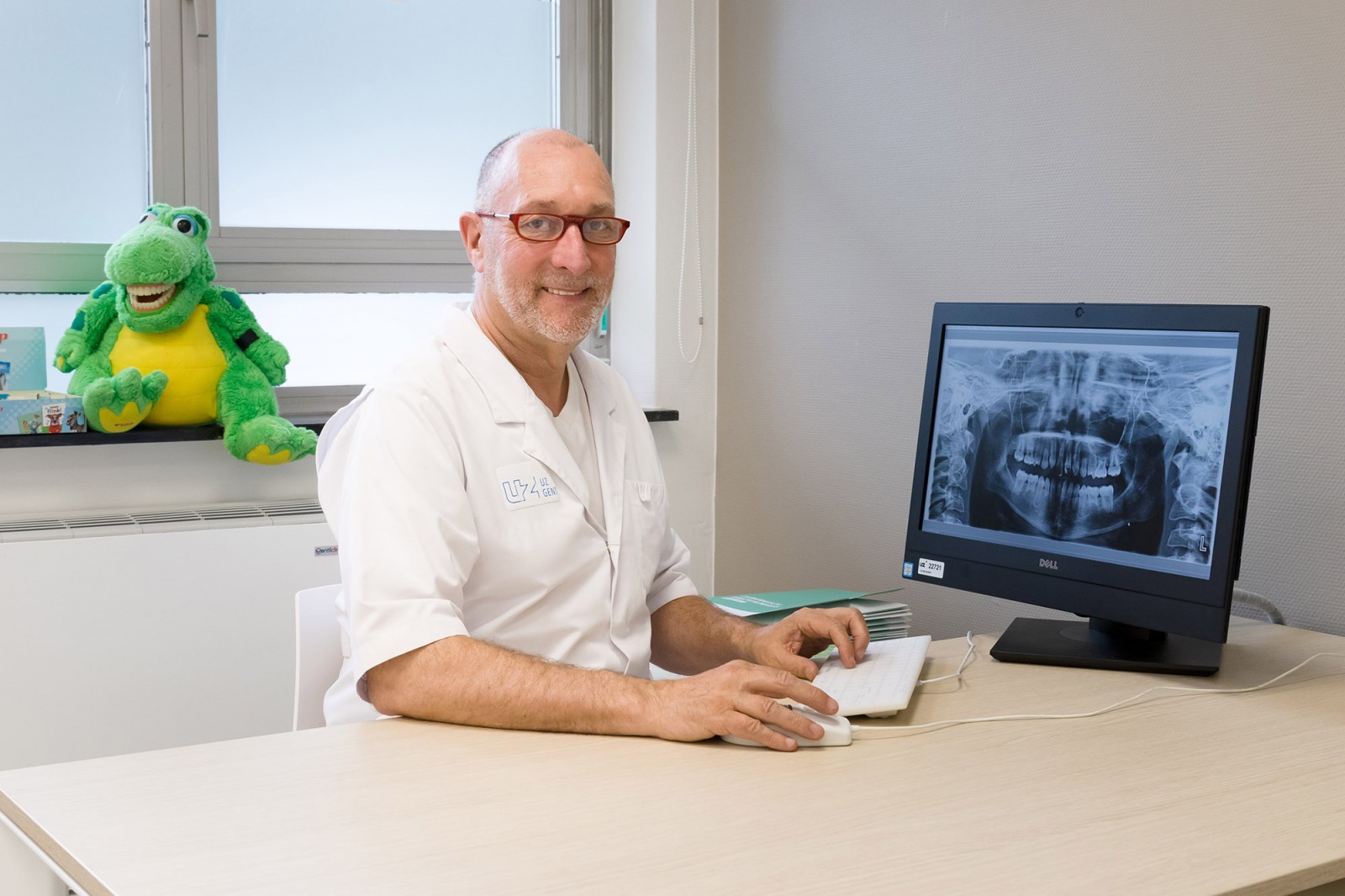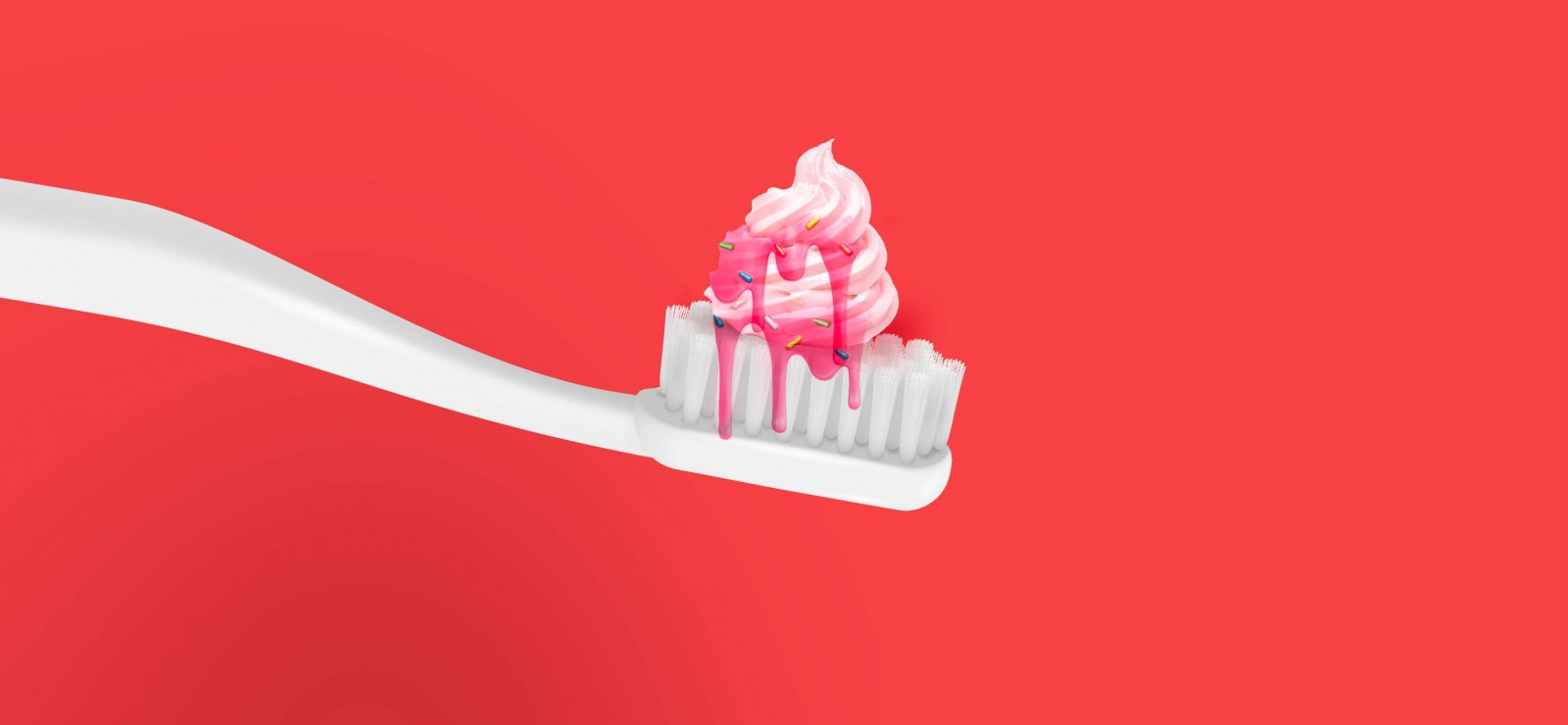Are soft drinks really that bad for your teeth? What about the eternal debate about electric versus manual toothbrushes? And is flossing the answer? Dentistry professor Luc Martens - who's had no cavities for several decades himself - has tips to keep your teeth free of holes.
Do many people suffer from dental problems?
“It’s hard to put a figure on it, but when you know that we treat around 1,100 patients a week at Ghent University Hospital and that dentists have month-long waiting lists, it's fair to say that there are plenty of dental problems.”
Do we devote too little attention to our teeth?
“Not at all. In fact, we've never paid more attention to dental hygiene than we do today. Just look at the adverts on television: we can watch commercials about toothbrushes and toothpaste during prime time. You can’t imagine such a thing forty years ago. It has now become a billion-dollar business. On the other hand, the consumption of soft drinks has also grown significantly.”
Are soft drinks the problem?
“I wouldn’t say it's the biggest problem, but they certainly don’t help. On average, Belgians drink one can of soft drink a day. That makes a total of millions of litres every year. And you should know that less than thirty per cent of people opt for the light or zero version rather than the sugared version. Not that I wish to forbid it, because I drink soft drinks myself from time to time, but you do need to be smart about it. The same applies to sweets: I don’t encourage eating a lot of sweets, but everyone has a weakness. Personally, I have a soft spot for pralines. In that case, it’s better to eat seven pralines at once, than one praline every 15 minutes.”
What do you mean? The amount of sugar is the same either way?
“Yes, but saliva needs some time to neutralise the sugars and acids in your mouth. A person produces an average of one and a half litres of saliva a day. This neutralises the pH value, the acidity level, in your mouth after eating something. So, imagine you eat a biscuit, for example. The acidity level in your mouth then decreases. Once you go below the critical level, you can develop cavities.”
So saliva is very important for your teeth?
“Blood does for your organs what saliva does for your mouth. Your saliva can neutralise a large share of what you eat, provided you give it the time to do its work and you don’t eat sweets all day long. The golden rule of five consumption moments a day applies to your teeth as well: three large meals and two snacks. That space between meals is necessary for your teeth to recover. And of course, you also need to clean them properly.”

What's a good cleaning routine?
“In fact it’s very simple: brush twice a day with a toothpaste that contains fluoride. Once in the morning after breakfast and once in the evening before you go to bed. In the academic world there are still debates about the morning clean. More specifically about whether it is also allowed before breakfast. The reason being that this gives you a clean mouth before you start eating, which means that remnants of food will not come into contact with the bacteria your mouth produces at night. There is some truth in that but, on the other hand, you start your day with a dirty mouth and the bacteria return. That’s why I believe it is better to clean your teeth after breakfast. And of course also at the end of the day, after which you must refrain from eating or drinking.”
Does it make any difference whether you use an electric or a manual toothbrush?
“That’s a difficult question, as the answer is not black nor white. You will never hear me say that you must use an electric toothbrush. However, there is research that shows that you can remove more plaque with an electric toothbrush compared to a standard toothbrush. It is simply easier to reach the more difficult places. An electric toothbrush cleans those small places at a few thousand rotations per minute. That is simply not possible with a manual toothbrush.”
So you're better off buying an electric toothbrush if you want a clean mouth?
“I would not say that it’s essential. There are many people who have always used a normal toothbrush and have a very good set of teeth. Furthermore, not everyone can afford it. What an electric toothbrush does have, is the undeniable advantage that you can remove significantly more plaque. Provided you use it properly, of course.”
Is there a wrong way to clean using an electric toothbrush?
“Of course. Many people use an electric toothbrush in the same way as a standard one. In fact, you have to allow the electric brush to do the work for you. You simply place the head on your tooth and move it around. Leave the brush to do the movements that you cannot. If you clean with an electric toothbrush as you would with a normal one there are certain places you will fail to reach.”
You haven't mentioned flossing. Is it unnecessary?
“Personally I don’t believe you need to floss on a daily basis. I don’t do that every day either. Also, there are no studies that prove that flossing removes significantly more plaque in every case. It does help people who do not clean well or whose teeth are not all lovely and straight. You can use floss to reach the trickiest corners. That’s why it’s not a bad idea to take the time to floss, for example, at the weekend. Noticed that your gums are bleeding? Then you should keep flossing, as it means something is stuck there that shouldn’t be. Unless they keep bleeding, of course, in which case you should visit your dentist.”
When was the last time you had a cavity yourself?
“That's more than forty years ago, already (laughs).”
Read also
Is a stool transplant a potential treatment for Parkinson’s?
A recent study into Parkinson’s disease has shown that a stool transplant may constitute a new and valuable treatment of the disease. “It offers a potentially safe, effective and cost-efficient way of alleviating the symptoms and improving the quality of life of millions. A 'bacterial pill' might replace the stool transplant in the future. But more research is needed.”
‘Women are not just copies of men with breasts and ovaries.’
Van wetenschappelijk onderzoek tot medische behandelingen, decennialang stond de man centraal in de medische wereld. Betekent dat dan ook dat vrouwen daardoor minder goede zorg krijgen?
Research into rare eye diseases at Ghent University: “It’s fair to say we rank amongst the world’s elite”
Around 8% of the world’s population suffers from a rare disease. In Belgium some 800,000 patients are affected. One of them is eighteen-month-old Oliver, who was born blind. He is closely monitored by professor Bart Leroy, whose team has made remarkable progress in the research into rare eye diseases. Still, there are quite a few stumbling blocks as well.
Are vitamin pills innocent?
For many people, a daily dose of vitamins and minerals has become part of their everyday routine. Especially in winter we ingest massive quantities of vitamin D because we think it boosts our immune system. But is that accurate and is that daily vitamin pill as innocent as it appears?



